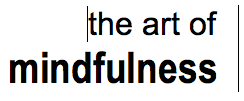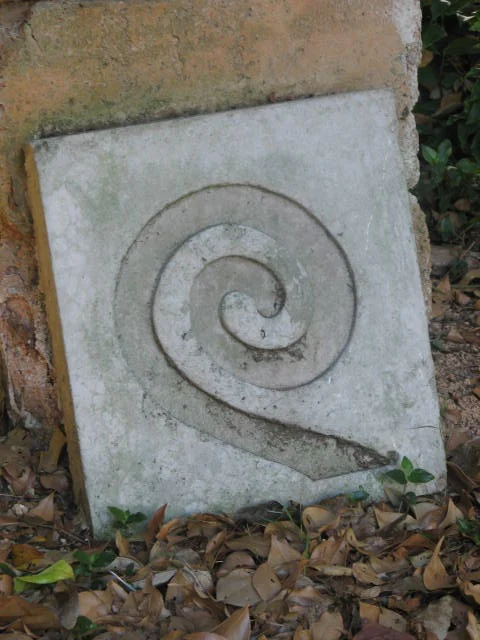Mindfulness and the Trap of Idealism
/I read recently that when the Dalai Lama first heard about the concept of self-hatred, he was incredulous - it was apparently not a phenomenon he was familiar with amongst people from his culture. On reflecting for a period of time, he said that the only conclusion he could come to was that a human being’s dislike of her or himself could only be an expression of exaggerated self-importance.
Now whether or not he simply didn’t understand the translation of the term self-hatred, and whether or not it is true that Tibetans don’t suffer from self-aggression to the extent we do in the West, his response prompted some reflection in me. I understand that self-dislike can only arise from the failure to aspire to some ideal that I think I want or deserve, or which someone I’m comparing myself to seems to be fulfilling. But I hadn’t considered that to even think I should live up to such an ideal is inflating the importance of myself as an individual somehow separated out from the network of life. In doing so, I’m refusing to surrender to the existence of ‘non-ideal’ aspects of myself, and refusing to intuit what life wants of me, submitting instead to the ideals demanded by society or upbringing, even though they can feel as if they are mine.
Culture, media, religion and parental conditioning are some of the factors that conspire to set the bar very high in the way of externalised ideals. As you know, many people in our culture lack true, unconditional self-worth, and true, unconditional self-confidence. This isn’t surprising. We’ve been taught to secure our worth in conditions - money, youth, beauty, successful relationships. to name a few. We’ve eclipsed a basic and sane sense of worth in simply being, in simply having shown up for a while as a unique human expression of the force of Life. We have not been brought up in a wisdom culture with wise elders who model a state of being fuelled by original and innate joy, prior to physical achievements, attributes or success.
Amidst this situation, enter mindfulness. The discipline of attention. A strengthening of the muscle of present-moment awareness. The practice of bringing kindly attention to the unfolding of life, here in this body, now in this moment, regardless of what the conditions are like. An awareness of the arising of thoughts that hijack a simple and awake dwelling in the present moment, and an intentional willingness to not engage with them. The practice, when our mind wanders, of escorting our attention back to here and now. A friendliness towards the emotions and sensations that arise within us, and a willingness to investigate the palpable nature of those in our body.
It is true that one of the fruits of an ongoing practice in mindfulness is an ease and growing groundedness in the face of upheaval. It is true that mindfulness practice, over time, leads to a reduction in stress and anxiety. But herein lies a trap. Mindfulness can easily become a quest for an outcome, the goal being the behaviours that are a natural outcome of a process of letting go and non-wanting. Then, the ‘achievement’ of peace and equanimity, even in the face of stress, becomes yet another ideal to live up to, And what’s more, when this doesn’t happen, or if our mindfulness practice time is chaotic and not peaceful, it’s very easy to feel like a failure.
You could say that in mindfulness practice, we are dropping any sense of good and bad, right and wrong, and beginning from a place of OK-ness with what is. There are no thoughts that are wrong – they have arisen, so no-one can say they shouldn’t have! There is of course always the choice whether to ride on these thoughts, to rark them up, and to believe them - and that will cause suffering, though it isn’t ‘wrong.’ There isn’t a ‘good’ mindfulness practice session or a bad one, even though most people are convinced that if their minds are all over the place, it’s a bad session, and if they feel peaceful and centred, it’s a very good one. In truth, there are just calm sessions and busy-mind sessions, just as there is calm weather and stormy weather.
I’ve recently spent three days with 18 women, teaching a retreat on the theme of self-compassion. Almost without exception people expressed how much they expect of themselves, how much effort they put into being everything for others, and how challenging it is to just stop, let go, drop ideals and ambition, and do less. Some, who had practiced mindfulness before, said that they were beginning to notice that they have been approaching mindfulness, a practice which essentially is one of compassionate present-moment awareness of whatever is arising in the body / mind, as another thing to be good at and get right.
After the retreat, someone told me for instance how disappointed she was to react with agitation and stress to a difficult phone call with her ex-partner. ‘It made me realise how far I have to go’, she said.
Mindfulness is not a self-improvement tool, nor is it, in and of itself, spiritual practice. However, in the practice of dwelling right here, right now, I might begin to feel the degree to which I’ve forgotten my original joyfulness, my contentment with the simplicity of just being, just sitting, just being breathed. I might uncover the drivers in my unconscious mind that begin to come into awareness. Please others. Be perfect. Try harder. Mindfulness therefore can open a window on our habits, motivations and the ideals we set ourselves. It can uncover beliefs and directives in our internal landscape that hold us prisoner to ideals that were never really our own. Mindfulness may well show up a basic lack of self-esteem covered up through busy-ness, over-eating, sex, status, money and fixed ideas, all things that hold a firm (though unreliable) identity of ‘me’ in place.
No wonder a woman recently posted on my Facebook page, in response to an advertisement for an upcoming silent retreat with me: ‘I can’t be left alone with my mind for three days – it’s dangerous!’
The heart of mindfulness is not to give yourself yet another thing to be good at, another ideal to live up to, or something else to fit in. It is the growing practice of giving your attention, moment by moment, to the experience of being here, right now with whatever is happening.
I’d like to conclude with words from my teacher, Sri Yanchiji:
“I so wish for every individual to be kind and gentle with his or her self. Humans expect ridiculous and impossible things from themselves…. when the individual him or herself really does not have a deep acceptance and appreciation and gratitude and wonder and love for their own unique existence. It is such a pity. Our human existence passes so very quickly. We are here only by each heartbeat, each breath, and as gentle and fragile and exquisite as an unexpected soft kiss on our living dying subtle bodies”

